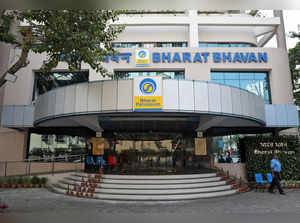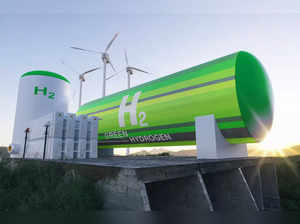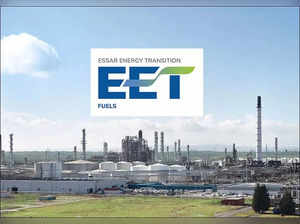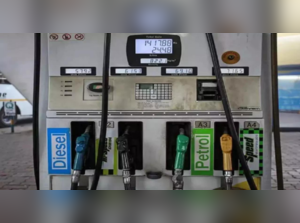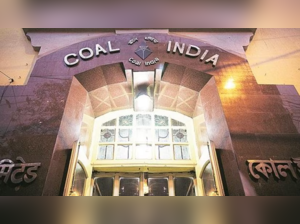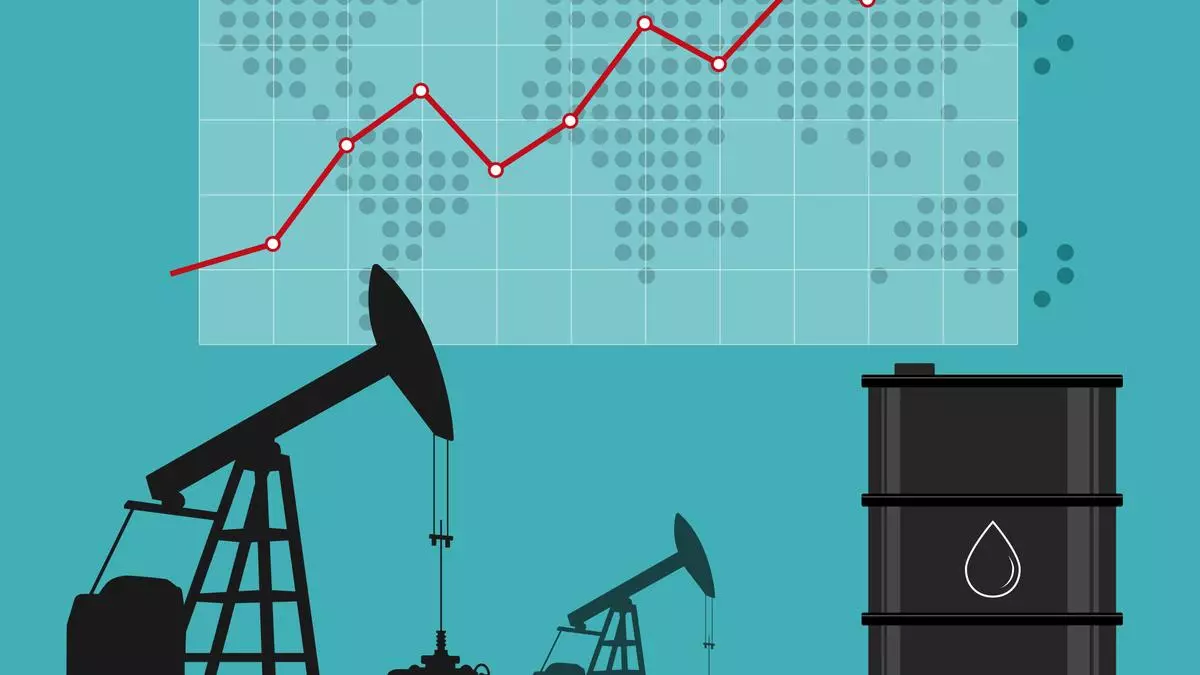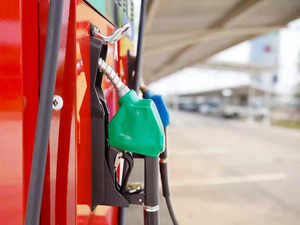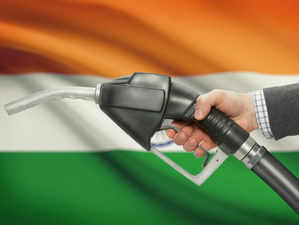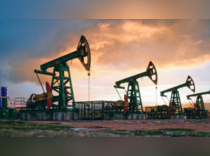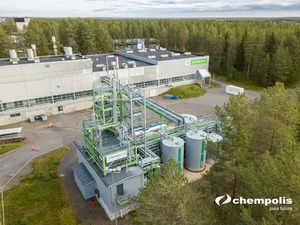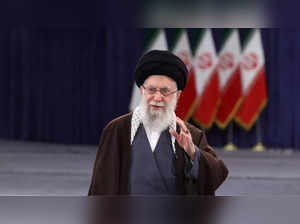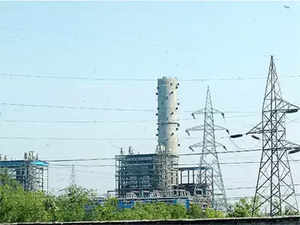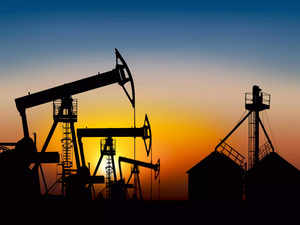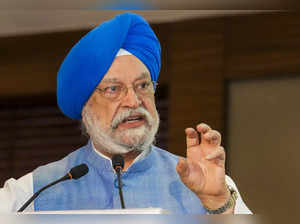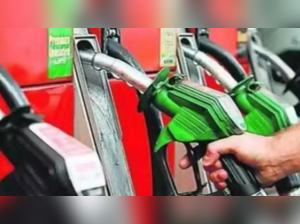Latest News
BPCL and Mumbai Port Authority to launch India's first green fuel ecosystem
Last Updated: Oct 03, 2024, 05:20:00 PM ISTBPCL partners with Mumbai Port Authority and Mumbai Port Sustainability Foundation to set up EV charging stations and convert diesel vessels to cleaner fuels, aiming for sustainable maritime operations. The collaboration includes waste management initiatives to enhance environmental responsibility and reduce the port’s carbon footprint.
BPCL, Mumbai Port Authority sign pact to establish sustainable energy ecosystem
Last Updated: Oct 03, 2024, 11:43:00 AM ISTBPCL, Mumbai Port Authority, and Mumbai Port Sustainability Foundation have partnered to create a green fuel ecosystem at Mumbai Port. This initiative includes setting up EV charging stations, converting diesel vessels to cleaner fuels, and enhancing waste management. The collaboration aims to support India’s environmental goals by reducing greenhouse gas emissions.
'How many people knew this': Elon Musk jabs Hollywood amid sexual abuse allegations against Sean Diddy
Last Updated: Oct 03, 2024, 10:22:00 AM ISTRapper Sean 'P Diddy' Combs faces serious accusations of sexually abusing 120 individuals, including 25 minors, with a boy as young as nine. Allegations involve drugging victims with horse tranquilizers. He was indicted on multiple counts of abuse and coercion and remains jailed in New York, while his lawyers seek bail ahead of trial.
Green hydrogen hype fades as high costs force project retreat
Last Updated: Oct 04, 2024, 09:34:00 AM ISTSeveral companies are canceling and scaling back green hydrogen projects due to high costs and slower-than-expected market development.
EET Fuels secures $650 million financial facilities
Last Updated: Oct 03, 2024, 03:08:00 PM ISTEET Fuels, owner of the Stanlow refinery in the UK, has secured $650 million in financing and trade credit, bolstering its efforts to reduce emissions by 95% by decade-end through industrial carbon capture and blue hydrogen. This funding reflects strong market confidence in the company's decarbonization strategy.
Rapper Sean 'Diddy' Combs files appeal for release ahead of upcoming sex trafficking trial
Last Updated: Oct 01, 2024, 07:55:00 AM ISTSean “Diddy” Combs has filed an appeal against a federal judge’s decision to keep him in jail while he awaits trial for sex trafficking charges. His legal team is challenging the ruling, which claims that Combs poses a danger to the community. The case involves allegations that Combs used his influence to coerce women into drug-fueled sexual performances. He is scheduled for a court hearing on October 9.
Petrol sales rises 2.8% in September, diesel drops 2%
Last Updated: Oct 01, 2024, 11:54:00 PM ISTPetrol sales in India saw a 2.8% increase in September year-on-year, while diesel fell by 2%, indicating an oil demand slowdown. LPG sales rose by 1%. The growth rates for these fuels in September were lower than the April-August averages. Jet fuel sales jumped 9.5% driven by strong air traffic.
SpiceJet, IndiGo shares rally up to 6% after ATF price cut
Last Updated: Oct 01, 2024, 11:54:00 AM ISTThe ATF prices have been cut to Rs 87,597 per kg in Delhi, down from Rs 93,480 per kg earlier. The price reduction will help ease the burden on airlines for whom fuel makes up 40% of the airlines’ operating costs.
Coal India to apply uniform rates on late payments
Last Updated: Oct 01, 2024, 12:40:00 AM ISTEffective October 1, Coal India Ltd (CIL) will implement uniform interest rates on receivables past due, aiming for ease of business. Previously, interest rates varied even for the same buyer under different fuel supply agreements. The change addresses consumers' concerns about inconsistent interest rates.
India’s oil demand to grow by 8 mb/d between 2023-2050, the highest globally: OPEC
Updated - September 25, 2024 at 07:53 PM. |Some demand growth for this product to come from the petrochemical industry, commercial and agriculture sectors
Fossil fuel dominance in electricity generation to end by 2030, renewable to cross 50% share: RBI
Last Updated: Sep 28, 2024, 04:12:00 PM ISTThe Reserve Bank of India reports that fossil fuels' dominance in India's electricity generation will end by the decade's close. Renewable energy is expected to surpass 50% globally. The RBI emphasizes the need for tripling renewable investments to meet net-zero targets and highlights the importance of addressing sectors like steelmaking and aviation.
Yes, energy-guzzling AI can help greening
Last Updated: Sep 27, 2024, 10:31:00 PM ISTAI's potential to aid in greening the world while consuming significant energy is not paradoxical. It can enhance energy efficiency and expedite the transition to renewable sources. Overcoming challenges like energy demand, computing capacity, and skilled personnel is crucial for AI's widespread application and commercial viability.
Kutting-edge Kolkata kuts its trams out from the age of EVs - Go figure
Last Updated: Sep 28, 2024, 11:05:00 PM ISTThe article discusses the persistent issues in urban planning across Indian cities, focusing on Kolkata's decision to phase out its tram services. It highlights the government's failure to prioritize sustainable public transport and criticizes the ongoing preference for private vehicles, which exacerbates pollution and chaos in urban areas.
Oil companies making Rs 15/ltr profit on petrol even as consumers await big price cuts
Last Updated: Sep 30, 2024, 03:28:00 PM ISTIndian oil marketing companies are experiencing significant profits due to falling crude oil prices, but consumers have yet to see a substantial reduction in petrol and diesel prices. Despite the financial success of companies like IOC, BPCL, and HPCL, fuel prices remain high, impacting household expenses and inflation.
Headroom to cut petrol, diesel prices by Rs 2-3 per litre: Icra
Last Updated: Sep 26, 2024, 01:36:00 PM ISTRecent declines in crude oil prices have improved margins for state-owned fuel companies, allowing potential cuts in petrol and diesel prices by Rs 2-3 per litre. The price of imported crude oil averaged $74 per barrel in September, down from $83-84 in March. This could lead to reduced retail fuel prices if crude prices remain stable.
India's oil-product exports soar amid refinery shutdowns in Europe
Last Updated: Sep 30, 2024, 02:41:00 PM ISTIndia's clean oil-product exports surged to their highest since March 2022, driven by increased demand from Europe and Africa due to refinery shutdowns. In September, shipments of diesel, gasoline, and jet fuel reached 1.5 million barrels a day, marking a 39% year-on-year increase. European refinery maintenance and poor margins contributed to this spike.
Oil prices little changed as US stockpile drop offsets global demand woes
Last Updated: Sep 26, 2024, 07:08:00 AM ISTOil prices remained stable on Thursday after a previous decline, as increased fuel demand and reduced stockpiles in the U.S. balanced concerns over global demand, especially in China. Brent crude rose to $73.55 per barrel, while U.S. West Texas Intermediate reached $69.73 per barrel, following China's stimulus measures and easing supply disruptions in Libya.
Pump pressure: How Nawgati is helping drive fuel efficiency for consumers and fuel station owners
Last Updated: Sep 24, 2024, 10:16:00 AM ISTFounded in 2019, Nawgati is a one-stop fuel aggregator platform that addresses the pain points of compliance and congestion monitoring for the fuelling industry.
The world is a mess. That makes the climate crisis harder to solve.
Last Updated: Sep 24, 2024, 03:53:00 PM ISTGlobal leaders face a fractured world at the U.N. General Assembly, grappling with climate change and geopolitical tensions.
Revenue over relief? Govt has room to cut customers some slack over oil prices, or choose to swell its own pocket
Last Updated: Sep 25, 2024, 11:32:00 AM ISTThe recent drop in oil prices could allow the Indian government to increase excise duty while offering moderate fuel price cuts to consumers. This strategy may help ease inflationary pressures. A report by BofA Securities suggests potential revenue gains and reduced import costs, benefiting India's economy.
Fair competition: PNGRB to hear CGD entities on case-to-case basis over exclusive rights to sell gas
Updated - September 20, 2024 at 09:06 PM. |CGD companies have two types of exclusivities for selling natural gas. One is marketing, allowing exclusive rights to sell gas for 7-8 years. Second is infrastructure, allowing exclusive use of pipelines for 25 years
Tugboat powered by ammonia sails for the first time, showing how to cut emissions from shipping
Last Updated: Sep 23, 2024, 07:14:00 PM ISTA New York-based startup, Amogy, has successfully converted a 67-year-old diesel tugboat to run on cleanly-made ammonia, demonstrating a significant step towards zero-emissions maritime propulsion. This innovation aims to address the increasing carbon dioxide emissions from shipping, which account for about 3% of global emissions.
AM Green Technology enters biofuels business
Last Updated: Sep 23, 2024, 11:13:00 PM ISTHyderabad-based AM Green Technology and Solutions has signed a binding agreement to acquire Finland's Chempolis Oy and Fortum 3 B. entities, marking its entry into biofuels. The company plans to invest $1 billion over the next three years to produce sustainable aviation fuel for global airline decarbonisation. AM Green will also acquire Fortum's shares in Assam Bio Refinery in India.
Iran unveils new arsenal as tensions rise
Last Updated: Sep 22, 2024, 12:20:00 AM ISTDuring a military parade, Iran showcased a new ballistic missile and an enhanced one-way attack drone, according to state media. The solid-fuel Jihad missile has a range of 1,000 km, while the upgraded Shahed-136B drone can travel over 4,000 km. Supreme Leader Ayatollah Ali Khamenei urged Islamic nations to sever ties with Israel.
N-power to play greater role in India's energy mix: AEC chairman Ajit Mohanty
Last Updated: Sep 17, 2024, 07:00:00 PM ISTIndia plans to expand its nuclear power capacity over the next two decades to meet energy security and climate goals. The country is building new reactors, including 700-MWe PHWRs and a 500-MWe PFBR. Private players are also being involved in developing small modular reactors and new nuclear technologies.
Changed oil market may help India extract better deals from suppliers
Last Updated: Sep 19, 2024, 08:33:00 PM ISTIndia's fuel consumption is rising while global demand weakens, affecting next year's crude purchase negotiations. The govt plans to pass benefits of a new oilfield law to winners of the ninth exploration licensing round. The volatile market may delay state-run companies from reducing consumer prices.
India, US for giving push to sustainable aviation fuel, hydrogen in buses
Last Updated: Sep 17, 2024, 02:06:00 PM ISTIndia and the US have agreed to boost sustainable aviation fuel, promote electrification of medium and heavy-duty vehicles, and use hydrogen in buses and tractors. The agreement was made during the Strategic Clean Energy Partnership dialogue, highlighting investments in clean energy markets and modernising power distribution for reliable energy access.
Private oil companies' fuel retail share rises on stable domestic pump prices
Last Updated: Sep 17, 2024, 09:31:00 AM ISTReliance Industries and BP's joint venture has significantly increased its petrol and diesel sales in India this year, achieving a market share of 2.75% for petrol and 4.35% for diesel. Nayara also saw growth, while Shell experienced mixed results. Private players' market share in fuel retail has risen amid declining refining margins globally.
Petrol, diesel price cut before Maha elections? Oil Minister official says prices volatile
Last Updated: Sep 19, 2024, 04:46:00 PM ISTInternational oil prices remain volatile, causing uncertainty in petrol and diesel price reductions despite lower input costs. State-owned fuel retailers have not revised rates since late 2021, citing volatility. Petrol and diesel prices are currently frozen, with potential cuts before Maharashtra elections uncertain.


